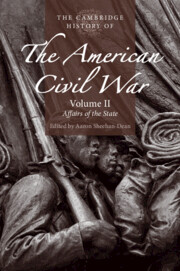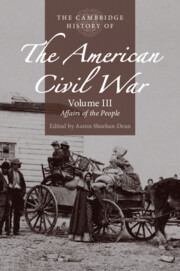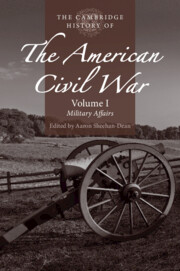3 results in The Cambridge History of the American Civil War

The Cambridge History of the American Civil War
-
- Published online:
- 11 October 2019
- Print publication:
- 31 October 2019

The Cambridge History of the American Civil War
-
- Published online:
- 11 October 2019
- Print publication:
- 31 October 2019

The Cambridge History of the American Civil War
-
- Published online:
- 11 October 2019
- Print publication:
- 31 October 2019

